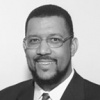Recently, two events at the national and local levels underscored the challenges our society is facing as we seek to compete in a knowledge-based global economy. At the end of January, President Bush gave his annual State of the Union Address. Among the many initiatives he unveiled was the American Competitive Initiative. Within a few days of his speech, local leaders broke ground on the new Peoria NEXT Innovation Center.
The American Competitiveness Initiative unveiled by the president is intended “to encourage American innovation and strengthen our nation’s ability to compete in the global economy.” The strategy includes increasing federal investment in basic physical science research programs over the next 10 years, promoting and encouraging private sector investment in innovation, strengthening the federal support for elementary math and science education, supporting universities that provide world-class education and research opportunities, providing career development training opportunities for workers, and proposing immigration reform to attract and retain world-class talent.
In early February, construction began on the $12 million Peoria NEXT Innovation Center. The Innovation Center is central Illinois’ ambitious first step to realign our community resources to compete in the knowledge economy. It’s designed to provide a place for entrepreneurs and technologists to commercialize innovative ideas into successful, free-standing businesses. The center eventually could house various facilitation groups providing valuable services for start-up companies. Additional benefits include diversifying the regional economy and the creation of up to 1,200 jobs over the next eight years.
At both the national and local levels, there’s a clear recognition that being competitive in the new economy means increased investment in research, innovation, and human capital. Workforce development leaders also recognize that we must align our human capital to meet the needs of the emerging economy. As we increase our national and local investments in these critical areas, we’ll also need the human talent to provide the scientists, engineers, knowledge technologists, health care professionals, and teachers necessary to support the research, innovation, and commercialization.
Unfortunately, there are some disturbing trends as we look at the human capital pipeline for the growth occupations of the 21st century. These trends include:
• The demographic projections of shortages of millions of workers over the next few decades resulting in reduced numbers of scientists, engineers, and knowledge technologists.
• The dynamics of the global economy and post-9/11 security focus has changed the patterns of immigration to America, where once we were able to recruit the best and brightest minds from all over the world.
• As the U.S. economy shifts, millions of individuals have been displaced due to layoffs; however, too many people don’t have the requisite skills to transition easily into the knowledge economy.
• Our educational pipeline that will produce the knowledge workers for the 21st century is losing ground internationally.
In our upcoming articles, we’ll explore these trends in greater detail. IBI

